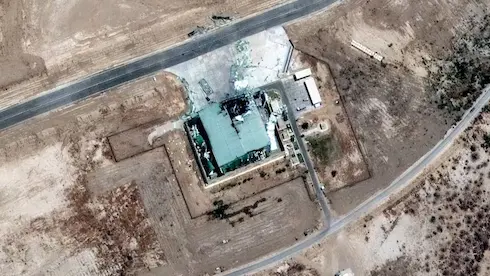
India’s Operation Sindoor unveils shocking revelations about Noor Khan Airbase’s alleged U.S. control
In a world of shifting alliances and hidden strategies, India’s Operation Sindoor has emerged as a pivotal moment in South Asian geopolitics. This decisive military action has not only disrupted Pakistan’s defensive operations but also uncovered a startling revelation, that the Noor Khan Airbase in Rawalpindi might be under U.S. control. As global financial institutions like the World Bank and IMF release emergency funds, analysts question whether this is merely economic aid or a coordinated response to the unfolding crisis.
Table of Contents
A Historical Perspective: India-Pakistan Rivalry
A Legacy Rooted in Partition
The India-Pakistan conflict traces its origins to the Partition of 1947, which led to the formation of two independent nations amidst one of the most violent mass migrations in history. The bitter division left deep scars, fueling territorial disputes and military confrontations.
Wars That Shaped the Region
Since their independence, India and Pakistan have fought four major wars:
- 1947-48 (First Kashmir War) – Pakistan-backed tribal forces invaded Kashmir, leading to India’s intervention and the eventual formation of the Line of Control (LoC).
- 1965 War – A full-scale conflict erupted over Kashmir, ending in a ceasefire brokered by the Tashkent Agreement.
- 1971 War – Resulting in the creation of Bangladesh, this war marked one of India’s most significant military victories.
- 1999 Kargil War – Pakistani forces infiltrated India’s Kargil sector, leading to a fierce battle that ended in India’s favor.
Geopolitical Tensions Beyond the Battlefield
While traditional wars have defined much of their rivalry, diplomatic and economic battles have played an equally critical role:
- Nuclear Deterrence – Both nations became nuclear powers by 1998, ensuring that conventional wars now carry global security concerns.
- Cross-Border Terrorism – Several attacks, including the 2008 Mumbai attacks, have strained relations, fueling hostility.
- Economic & Strategic Influence – India’s growing global partnerships, including its ties with the United States, have shifted regional power dynamics.
The Present-Day Conflict: More Than Just Borders
The latest flashpoint—Operation Sindoor and the Noor Khan Airbase controversy—has added another chapter to this ongoing saga. With alleged U.S. involvement, World Bank and IMF interventions, and Pakistan’s internal political struggles, the India-Pakistan rivalry now extends far beyond conventional military actions.
Operation Sindoor: India’s Strategic Military Response
Initiated in May 2025, Operation Sindoor was a covert precision strike targeting Pakistan’s key airbases, including Noor Khan Airbase in Rawalpindi and Murid Airbase. Intelligence reports suggested that these bases were not just Pakistani-controlled but involved foreign operations, raising concerns about sovereignty and external interference.
India’s Tactical Approach
India employed its BrahMos missile systems, known for precision strikes, to neutralize threats at strategic locations. The operation reportedly led to critical damage at Noor Khan Airbase, disrupting military logistics and signaling India’s readiness to counteract any hostile moves.
Noor Khan Airbase: The U.S. Connection
The most shocking revelation came when Pakistani defense analyst Imtiaz Gul disclosed that Noor Khan Airbase is effectively managed by the U.S., with restricted access for Pakistani military personnel. Satellite images and eyewitness accounts have further fueled speculation, revealing frequent movement of U.S. aircraft at the base.
Why Would the U.S. Control a Pakistani Airbase?
Several theories have emerged:
- Strategic Military Presence – The U.S. may use the base to monitor operations in Afghanistan, China, and the Middle East.
- Covert Operations – This could be a hub for intelligence gathering or drone deployments.
- Military Partnership – The airbase might serve as a negotiated asset under U.S.-Pakistan defense agreements.
Regardless of the explanation, the lack of transparency from both Pakistan and the U.S. fuels concerns about sovereignty and regional stability.
World Bank & IMF: A Coincidental Financial Surge?
Amid these tensions, global financial institutions have accelerated funding to Pakistan, raising suspicions about the timing and intent.
- World Bank and IMF have approved large financial packages, citing “economic recovery and stabilization efforts.”
- Analysts argue that this funding may indirectly be related to military operations, possibly ensuring economic resilience amid geopolitical shifts.
Global Reactions and Diplomatic Implications
- The United States has remained silent, neither confirming nor denying the reports about Noor Khan Airbase.
- Pakistan’s political circles are divided, with some officials denying foreign control, while others demand greater transparency.
- India has strategically leveraged the revelations, framing the narrative as a defensive move against foreign intervention in the region.
Conclusion
The intersection of military strategy, foreign influence, and financial interventions underscores the complexity of modern geopolitical conflicts. Operation Sindoor might not just be a retaliatory strike but a watershed moment exposing hidden global alliances. As financial institutions pump resources into Pakistan, and questions about U.S. control over Noor Khan Airbase remain unanswered, the world watches closely, waiting for the next move in this high-stakes game.
Stay updated with the latest news on Rapido Updates. Keep yourself updated with The World, India News, Entertainment, Market, Gadgets, Sports, and many more.